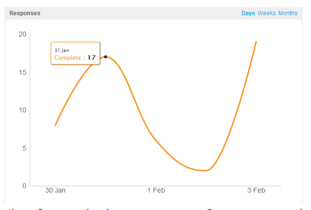For the past 25 years, with their elegant analytical models, quantitative analysts and transplanted physicists have ruled the roost in Finance. However, as global financial flows (and financial products) get more interconnected, complex and opaque; investors and managers are finding this new paradigm terrifying. It’s high time to supplement quantitative strategies with the softer side of risk management—before it’s too late.
For the past 25 years, with their elegant analytical models, quantitative analysts and transplanted physicists have ruled the roost in Finance. However, as global financial flows (and financial products) get more interconnected, complex and opaque; investors and managers are finding this new paradigm terrifying. It’s high time to supplement quantitative strategies with the softer side of risk management—before it’s too late.
Since 2008, Wall Street’s astrophysicists have been in shock. Analytical models such as Value-at-Risk (VAR) and others have proven time and again to be of limited value in understanding the true risk of banking products and overall portfolios. Whereas Wall Street’s quants relied heavily on analytical models to help them judge volatility and riskiness of their investment portfolios, today’s business managers and quants must look at a whole new set of variables—many of which cannot be quantified.
Financial Times author Gillian Tett writes how today’s global banks, hedge funds, pension funds and investors are in a state of “cognitive shock”. That because crises such as what’s happening in the Eurozone cannot be explained or predicted with models devised by Wall Street’s quantitative analysts. Instead, she says, what really matters now are non-quantitative issues such as “political values, social cohesion and civic identity.”
And these issues get back to an underlying and fundamental premise that all fiat money is based on—trust. When trust and faith among individuals, groups and nations disappear, rest assured most forms of money and wealth go with it.
Tett goes on to cite how “soft social issues” are suddenly replacing the all-important quantitative variables Westerner bankers have relied on for so many years. A new “mental shift” is taking place, she says, where rating agencies are modifying their equations, asset managers are reducing their emphasis on quantitative models, and even central bankers are memorizing social and political trends.
Indeed, when it comes to understanding our complex and global financial system, quantitative measures are being put in their rightful place –as an input to decision making, not the quintessential or all-important element.
The softer side of financial risk management means harkening back to the days where bankers needed feet on the street and relationships in court houses, statehouses and dining rooms to sense political and economic winds.
Probability models based on historical data are still important criteria, but it’s also now critical to assess factors such as societal trends, politics and even personal character in decision making. This is tough medicine for bankers, especially because these types of “softer data” are time consuming to capture, tough to categorize and analyze, and definitely don’t scale.
Gillian Tett says because of the sheer complexity of global financial markets, we’ve entered a new “age of volatility” where risk is difficult, if not impossible to model accurately. In effect, we’ve moved from a “plug and play” world where we do one thing and expect a consistent reaction, to more of a “plug and pray” pattern where we turn the dial and hold onto our seats for dear life. In this new world Bayesian Inference may be of some assistance, but we may also have to accept there are some things just too complex to effectively model.







